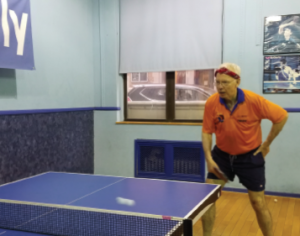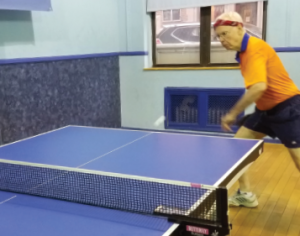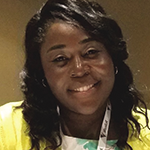 Roughly 15 years ago, Steven K. Magid, MD, rheumatologist and chief medical information officer at the Hospital for Special Surgery (HSS) in N.Y., attended a social event for hospital employees. While chatting with other physicians, nurses, and lab techs, he watched one of his colleagues slaughter her opponents at Ping-Pong.
Roughly 15 years ago, Steven K. Magid, MD, rheumatologist and chief medical information officer at the Hospital for Special Surgery (HSS) in N.Y., attended a social event for hospital employees. While chatting with other physicians, nurses, and lab techs, he watched one of his colleagues slaughter her opponents at Ping-Pong.
“She was very skilled,” recalls Dr. Magid, who also serves as the co-chair of the Quality Coordinating Committee and runs the Quality Research Center at HSS. “She had this really fancy blade [paddle] and creamed everybody she played against.”
That scenario partially changed Dr. Magid’s life, converting him into a Ping-Pong fanatic. Although he rarely competes, he trains with a coach twice each week and travels to other countries to either play the sport or watch competitions. He loves everything about the game—specifically its strategy and speed—and says it’s a cross between playing chess and car racing at the same time.
“It’s a very fast game and there is instant gratification or pain when you either make or miss a shot,” says Dr. Magid. “More happens in a few minutes of Ping-Pong than in an hour of football. The pace of the game, the strategy, is phenomenal.”
Yes, It’s Really a Sport

Dr. Magid wields his blade with practiced skill.
After graduating medical school at Cornell University in 1976, now called Weill Cornell Medicine, Dr. Magid completed his residency three years later at New York Hospital, which has since changed its name to New York–Presbyterian Hospital. Then he completed his fellowship at HSS in 1981.
It wasn’t until 20 years later that he was struck with Ping-Pong fever. Whether it was learning how to serve killer spins that appealed to him or meeting people from all over the world involved with the sport, he quickly became a devoted fan.
There’s a lot more to the game than what most people realize, he says, explaining that because he mostly trains with the same coach rather than competing against numerous players, it’s hard for him to read an opponent’s serve.
“The trick is not to show your opponent where on the table you’re going to serve or which of the myriad of spins you’re going to use on the ball,” says Dr. Magid, adding that each table is divided into nine quadrants. “It’s done by subterfuge, with motions before and after you strike the ball. You make it seem like you’re going to hit under the ball, but then instantly change your serve and hit a top spin.”


